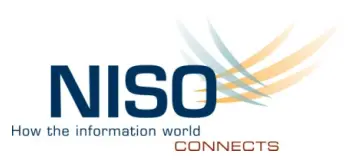NISO: National Information Standards Organization

NISO, the National Information Standards Organization, is a nonprofit association founded in 1939 to identify, develop, maintain, and publish technical standards to manage information in our continually changing digital environment. NISO standards apply to both traditional and new technologies and to information across its whole lifecycle. The organization was designated by ANSI to represent U.S. interests as the Technical Advisory Group (TAG) to the International Organization for Standardization’s Technical Committee 46 on Information and Documentation. NISO also serves as the Secretariat for Subcommittee 9 on Identification and Description. Standards from NISO are available both individually, directly through the ANSI webstore, and as part of a Standards Subscription. If you or your organization are interested in easy, managed, online access to standards that can be shared, a Standards Subscription may be what you need - please contact us at: [email protected] or 1-212-642-4980 or Request Proposal Price.
Below are NISO's best-selling standards. To find additional standards, please use the search bar above.
ANSI/NISO Z39.18-1995
Scientific and Technical Reports - Elements, Organization and Design (revision and redesignation of ANSI Z39.18-1987)
Guidelines for the elements, organization, and design of scientific and technical reports
ANSI/NISO Z39.14-1997 (R2002)
Guidelines for Abstracts
This standard helps authors and editors prepare useful abstracts by describing the components of an abstract and the appropriate styles and formats. Numerous examples illustrate the instructions presented in the standard and clarify how to handle special cases.
ANSI/NISO Z39.48-1992 (R2002)
Permanence of Paper for Publications and Documents in Libraries and Archives
Publishers and paper manufacturers, take note! This standard sets the basic criteria for coated and uncoated papers that will last several hundred years under normal use. It covers ph value, tear resistance, alkaline reserve and lignin threshold. Recycled papers will meet the criteria specified. This revision to the original 1984 standard is based on testing conducted by the Institute of Paper Science and Technology and contributions from paper makers, publishers, printers, and the preservation community.
ANSI/NISO Z39.84-2000
Syntax for the Digital Object Identifier
Defines the order and composition of the DOI (Digital Object Identifier) used to identify property in the digital environment.
ANSI/NISO Z39.85-2001
The Dublin Core Metadata Element Set
Metadata is structured information that describes, explains, locates, or otherwise makes it easier to retrieve, use or manage an information resource.
